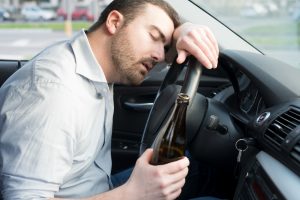 Although it is starting to look like it, this is not a blog about NFL players charged with DUI (called ‘OVI’ in Ohio). Recent articles discussed the cases of Henry Ruggs III and Geno Smith because those cases illustrated legal concepts related to DUI/OVI. The last article, about Geno Smith’s arrest, addressed what evidence indicates a driver may be under the influence before a traffic stop. In some DUI/OVI cases, traffic stops are not an issue, such as when the driver is in an accident or found passed-out behind the wheel. The legal concept at issue in those cases is when the driver is ‘seized’ and whether the seizure is legal. The case of Las Vegas Raiders cornerback Nate Hobbs illustrates that concept.
Although it is starting to look like it, this is not a blog about NFL players charged with DUI (called ‘OVI’ in Ohio). Recent articles discussed the cases of Henry Ruggs III and Geno Smith because those cases illustrated legal concepts related to DUI/OVI. The last article, about Geno Smith’s arrest, addressed what evidence indicates a driver may be under the influence before a traffic stop. In some DUI/OVI cases, traffic stops are not an issue, such as when the driver is in an accident or found passed-out behind the wheel. The legal concept at issue in those cases is when the driver is ‘seized’ and whether the seizure is legal. The case of Las Vegas Raiders cornerback Nate Hobbs illustrates that concept.
It Happened in Vegas
According to Newsweek, witnesses told police Hobbs was asleep on the exit ramp of a parking garage at the Cromwell Hotel in Las Vegas. Officers from the Las Vegas Metropolitan Police Department made contact with Hobbs, and Hobbs was passed-out behind the wheel of his car. The officers performed field sobriety testing and arrested Hobbs for DUI.
Not All Police Encounters are Seizures
In a typical OVI case, an officer stops a motorist for a traffic violation. At that point, the driver is ‘seized’ within the meaning of the Fourth Amendment to the United States Constitution. The United States Supreme Court held a traffic stop is a ‘seizure’ in the 1979 case of Delaware v. Prouse. A seizure is justified if an officer has a warrant, or if there is a recognized exception to the warrant requirement.
When a law enforcement officer makes contact with a driver who was in an accident or who is asleep behind the wheel, the initial contact is generally not considered a seizure. Instead, the initial contact is considered a ‘consensual encounter’ which requires no justification. The initial encounter may also be justified as a ‘community caretaker function’, an exception to the warrant requirement which permits officers to render aid.
A Seizure Must Be Justified
At some point, a consensual encounter or a community caretaking function may become a seizure. According to United States v. Mendenhall, a seizure occurs when, “in view of all the circumstances surrounding the incident, a reasonable person would have believed that he was not free to leave”. When the officers had Hobbs get out of the car for field sobriety testing, he was seized.
When an initial encounter becomes a seizure for an OVI investigation, that seizure must be justified by specific articulable facts showing a reasonable basis for the seizure. Whether the seizure is justified depends on the ‘totality of the circumstances’.
Officers are trained to detect intoxication. The basis for the training is the manual published by the National Highway Safety Administration (NHTSA) titled DWI Detection and Standardized Field Sobriety Testing. According to that manual, when an officer has personal contact with a driver, certain conditions and actions of the driver are evidence of impairment. Those include:
- Bloodshot eyes
- Soiled clothing
- Difficulty retrieving documents
- Problems with vehicle controls
- Difficulty exiting the vehicle
- Alcohol containers
- Drugs and drug paraphernalia
- Unusual actions
- Slurred speech
- Admission of drinking or using drugs
- Inconsistent responses
- Unusual statements
- Odor of alcohol or marijuana
- ‘Cover-up’ odors
Challenging Seizures in OVI Cases
When a driver charged with OVI contests the charge, the driver may file a motion to suppress evidence, arguing the seizure of the driver was not justified. The judge hears the evidence, considers the totality of the circumstances, and decides whether the officer had a reasonable basis to seize the driver for sobriety testing. If the judge decides the seizure was not justified, any evidence obtained after the seizure is suppressed: it cannot be introduced as evidence at the trial.
This article has explained when a driver is ‘seized’ and when such a seizure is legal. Future articles will explain other legal concepts related to DUI/OVI. Most of them will not involve NFL players!
 Columbus OVI/DUI Attorney Blog
Columbus OVI/DUI Attorney Blog

